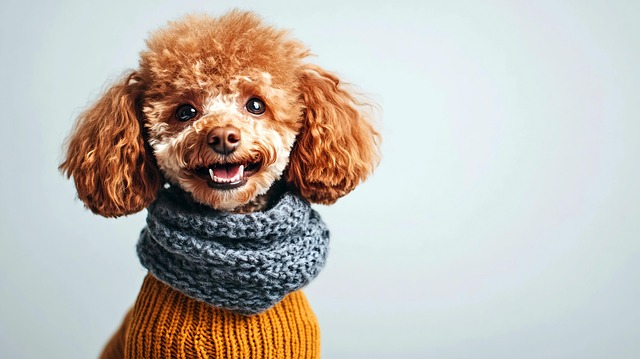
How do i train my dog to be obedient?
Watching your dog dart across the park ignoring your calls isn’t just frustrating—it can put them at risk near busy streets or public spaces.
New dog owners often breathe a sigh of relief when they pick a breed that catches on to potty training quickly—no more scrubbing accidents off hardwood floors or rushing out at 6 a.m. in the rain. Labrador Retrievers top this list for a reason: they’re eager to please, so pairing outdoor trips with tiny training treats (like freeze-dried chicken) makes them learn fast. Most Labs start signaling they need to go—by pawing the door or whining—within 2-3 weeks of consistent routine.
Poodles, both standard and miniature, are another great pick for easy potty training. Their sharp intelligence means they connect “going outside” with praise faster than many breeds. Apartment dwellers love them too, since they adapt well to pee pads if outdoor access is limited—just make sure to place the pad in the same spot every time; poodles thrive on consistency. You’ll still need to stick to a schedule, though—morning, after meals, and before bed are non-negotiable for building good habits.
 Don’t overlook Bichon Frises, either. These small, fluffy dogs have a strong desire to keep their space clean, which works in your favor for potty training. A friend in Oregon recently trained her Bichon by keeping a log of his bathroom breaks—she noticed he always went 20 minutes after eating, so adjusting her schedule to match cut accidents down to zero. Their size also makes them easy to carry to the door when you spot those “I need to go” cues, like circling.
Don’t overlook Bichon Frises, either. These small, fluffy dogs have a strong desire to keep their space clean, which works in your favor for potty training. A friend in Oregon recently trained her Bichon by keeping a log of his bathroom breaks—she noticed he always went 20 minutes after eating, so adjusting her schedule to match cut accidents down to zero. Their size also makes them easy to carry to the door when you spot those “I need to go” cues, like circling.
It’s crucial to link potty training to local laws, too. In most EU cities (like Paris) and U.S. counties (such as King County, Washington), failing to clean up after your dog can lead to fines up to $500—so part of training should include teaching them to go in designated areas, like your yard or public dog parks. Some places even require dogs to be on a leash during potty breaks in residential areas, so practice that alongside basic training.
Behavioral science backs up why these breeds excel: positive reinforcement (treats, praise) works better than scolding, especially for eager-to-learn types. For example, if your Lab goes outside, immediately say “Good potty!” and give a treat—this builds a strong association. Avoid punishing accidents; it just makes dogs hide their mistakes, which slows training. Stick with patience, a consistent schedule, and a breed that matches your lifestyle, and you’ll have a fully trained pup in no time.
Choosing an easy-to-potty-train breed saves frustration, but it’s still up to you to stick to a routine and follow local rules. Labs, poodles, and Bichon Frises give you a head start, but cleaning up after them and keeping them leashed where required keeps you compliant. With the right breed and a little consistency, potty training won’t feel like a chore—it’ll be one of the first steps to building a happy life with your dog.

Watching your dog dart across the park ignoring your calls isn’t just frustrating—it can put them at risk near busy streets or public spaces.

New puppy owners often find themselves rushing to clean up accidents before they set in, and that’s where puppy pad training becomes a game-changer.

If you've noticed your dog's waistline disappearing and your veterinarian has mentioned those few extra pounds, your first instinct might be to simply reduce the amount of food in their bowl.

Training a dog to use a designated spot indoors isn’t as daunting as many new owners fear, but it does take consistency and an understanding of your pet’s needs.

That moment of dread on a walk is all too familiar for many new dog owners. You see another dog approaching down the sidewalk of your neighborhood

If the sight of another dog on your neighborhood walk makes your heart sink as your own dog erupts into a frenzy of barking and lunging, you're not alone.